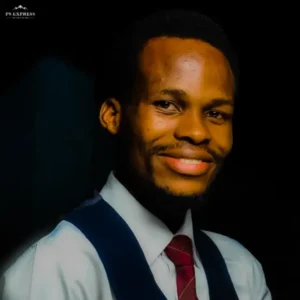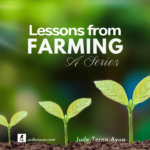In this chapter, Matory (2018)[1] counters the western view of African religions as ‘fetish’. He criticizes Hegel, whom he believes is not attentive “to his own projections…”—that it is people who make gods— “than to prove that Africans’ dialectical approach to the divine is wrong”[2]. He also criticizes Marx, who as a critique of Hegel’s projections, failed to give credit to Africans, and writes that Marx’s failure to notice that African “fetishists” resemble is because he did “see past the Enlightenment’s fetish…”[3] This criticism by the author is based on his argument that the African religions should not be categorized differently from the same religion that western philosophers such as Marx, Freud, and Durkheim criticized. Matory references the theories of these philosophers to support his argument.
The reasons, he writes, why the western scholars conceptualized the African religions as fetish include, first, “the premise that African indigenous religion is primordial and exempt from a history of human ingenuity and real change over time,” which he counter-argues, “like the theories of Marx and Freud, all religions address historically specific problems”[4]. By this, Matory believes that the African religions are also like the western religions. Second, “the reports…left by Dutch Calvinist merchants for the champions of the Enlightenment” which he argues were “often deliberately satirical and seldom well informed” and intended to “skewer the writers’ European rivals by comparing them to the most contemptible image of the African that they could construct”[5]. This implies the possibility that there was a deliberate misrepresentation of these religions in a way that would suit the “champions of Enlightenment” who based their categorization of them as fetish on these misrepresented reports. Another important reason that Matory points out is the existence of the master-slave relationship between the West (the enslavers) and Africans (the enslaved) which made the masters disregard the religious practice of the slaves[6]. A third important point, and in a more recent context, is the interpretation of African religious sacred objects by western scholars, the different meaning they attribute to them: following Viveiros de Castro’s (2004) critique of the “epistemological” approach that assumes that people of different cultures simply represent the same self-existent, natural world in culturally diverse terms, he posits that the accusation of fetishism arises out of these differences[7].
What I deduce from Matory’s argument is one’s subjective perception of the “other,” in this context, western theorists’ and philosophers’ conceptualization (or interpretation) of African religions (and other aspects of African culture) as fetish (idolatry, barbaric, diabolic) and as such, less religious, and the idealization of western religion(s) as godlike (divine, celestial) and therefore, more religious. Consequently, this subjective view accounted for the exclusion of African religions from early scholarship on religion. As Matory argues, there is no difference between these religious and the monotheistic religions, as they possess similarities and perform the same functions. For example, analogous to the western philosophers’ theory that “it is people who make gods” and the gods in turn, make man, so also are the African religions; the attribute of “the collective” or communal practice of religion is also applicable to the African religions[8]. Also, in reference to religious symbols and objects of worship, which are viewed as “portraits,” Matory explains they are “anthropomorphic representations” which “only an untrained eye will mistake” as such. According to him, they model “the typical relationship between the god and his or her human vehicles”[9]. He compares this to the sacramentals used by the Roman Catholic church in the Americas[10].
Another point Matory makes is the function of religious— “fetish”—objects in the social context: in support of Latour’s position that “the things we make have power over us,” he affirms, “that things do participate in a collectively and historically human-made world that affect people…”[11]. In this context, African religious beliefs and practices have significantly influenced the lives of African people; defined their worldviews, and shaped their perspectives. Religion is fundamental to their spiritual, social, and cultural existence.
The key takeaway from this chapter is that Westerners’ perception of African indigenous peoples’ cultural and religious practices is mostly subjective, and it affects their engagement with these practices, especially in academic discourse. This has however, changed in more recent years as scholars have engaged the study of African cultures more closely, and there is a quest for a better understanding of them. African scholars have also significantly contributed to the field, and addressed some of the misconceptions about African religions.
[1] Matory, J. Lorand. The Contrary Ontologies of Two Revolutions: Marx, Freud, and the Gods Black People Make. Duke Univ Press, 2018, pp. 175–90.
[2] Matory, 2018. pp. 175-6.
[3] Matory, 2018. p. 176.
[4] Matory, 2018. p. 172.
[5] Matory, 2018. p. 172.
[6] Matory, 2018. p. 172.
[7] Matory, 2018. pp. 186-8.
[8] Matory, 2018. pp. 177-8.
[9] Matory, 2018. p. 179.
[10] Matory, 2018. p. 180.
[11] Matory, 2018. p. 185-6.







